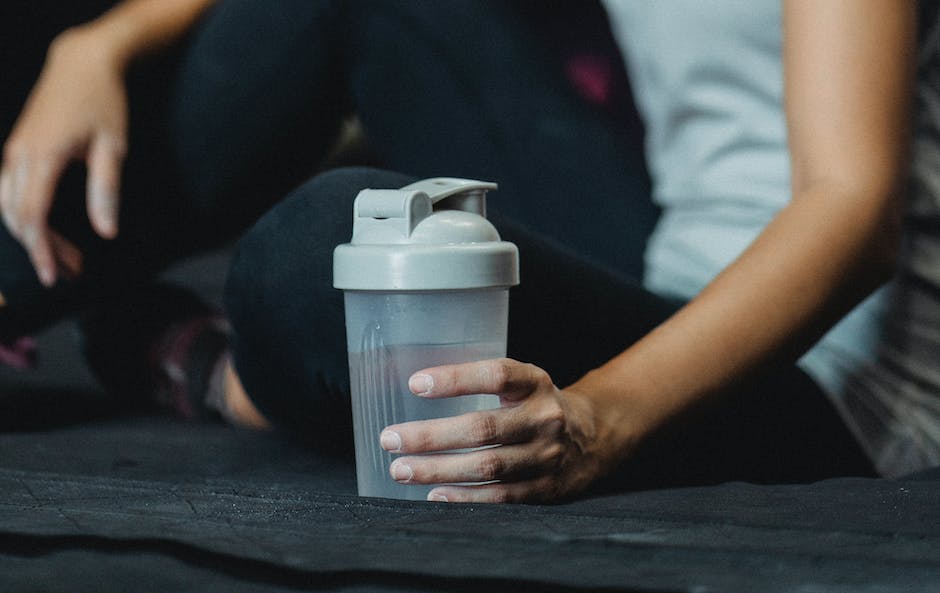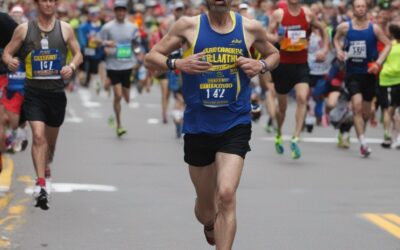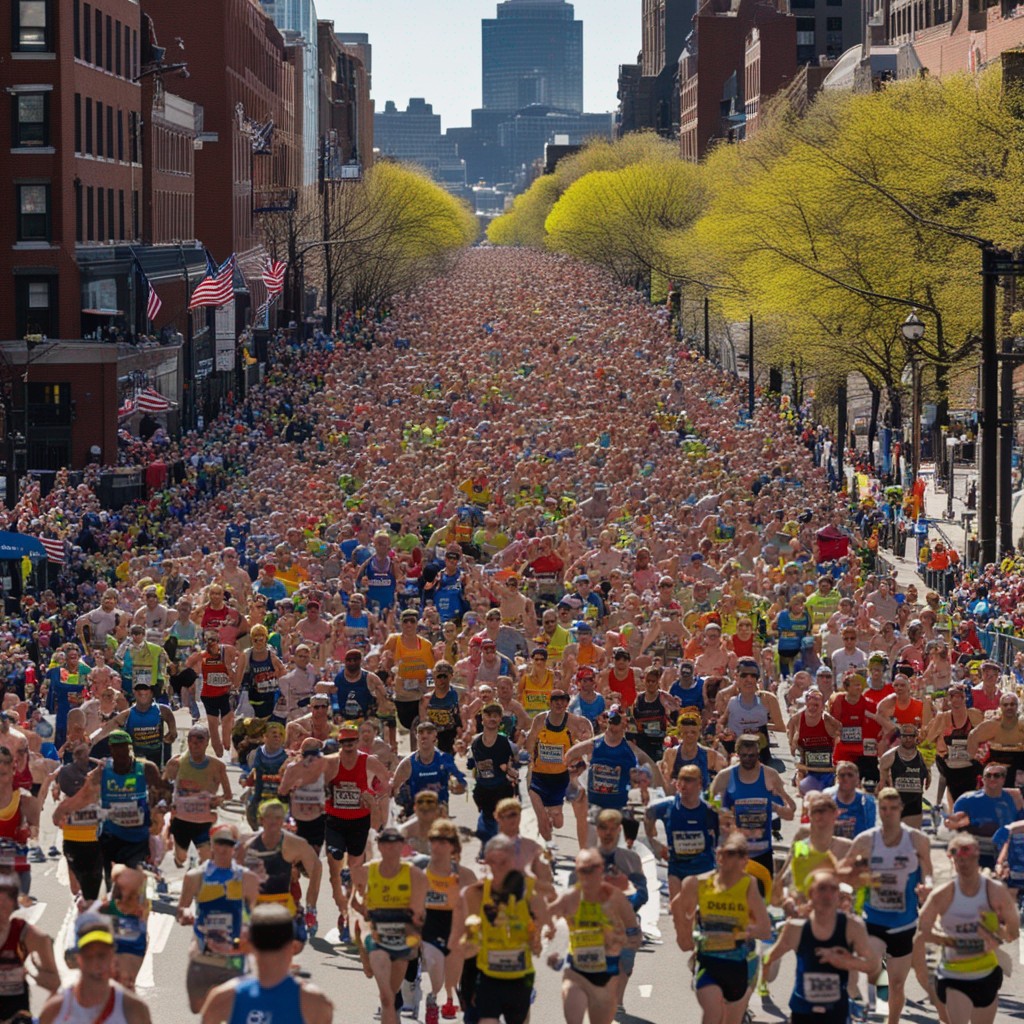Rest and recovery are essential components of any training program for a fitness event. Rest and recovery allow the body to repair and rebuild itself after intense physical activity, and are essential for athletes to reach their peak performance. Rest and recovery also help to reduce the risk of injury and illness, and can help to improve overall performance. This article will discuss the importance of rest and recovery in training for a fitness event and will provide tips on how to incorporate rest and recovery into a training program.
Strategies for Incorporating Rest and Recovery into Your Training Plan
Rest and recovery are essential components of any training plan. Without adequate rest and recovery, your body won’t be able to perform at its best and you won’t be able to reach your goals. Here are some strategies for incorporating rest and recovery into your training plan:
1. Schedule rest days: Make sure to schedule rest days into your training plan. This will give your body time to recover and rebuild after hard workouts.
2. Get enough sleep: Make sure to get enough sleep each night. This will help your body recover and prepare for the next day’s workout.
3. Eat a balanced diet: Eating a balanced diet will help your body recover and rebuild after workouts. Make sure to get enough protein, carbohydrates, and healthy fats.
4. Take active recovery days: Active recovery days are days when you do light exercise such as walking or yoga. This will help your body recover without putting too much strain on it.
5. Take a break: If you’re feeling tired or burned out, take a break from your training plan. This will give your body and mind time to rest and recharge.
By incorporating these strategies into your training plan, you’ll be able to maximize your performance and reach your goals. Rest and recovery are essential components of any training plan, so make sure to give your body the time it needs to recover and rebuild.
The Role of Hydration in Rest and Recovery for Training
When it comes to rest and recovery from training, hydration plays an important role. Proper hydration helps your body to recover from the physical stress of exercise and helps you to perform at your best.
When you exercise, your body loses fluids through sweat. This fluid loss can lead to dehydration, which can cause fatigue, muscle cramps, and other issues. To prevent dehydration, it’s important to drink plenty of fluids before, during, and after exercise.
During exercise, it’s important to drink fluids regularly to replace the fluids lost through sweat. This helps to keep your body temperature regulated and prevents dehydration. It’s also important to drink fluids after exercise to replace the fluids lost during exercise.
Proper hydration is also important for rest and recovery. When you’re resting, your body needs fluids to help repair and rebuild muscle tissue. Drinking fluids helps to replenish the fluids lost during exercise and helps to keep your body hydrated.
It’s important to drink plenty of fluids throughout the day, not just during and after exercise. Staying hydrated helps to keep your body functioning properly and helps to prevent fatigue and other issues.
When it comes to rest and recovery from training, hydration plays an important role. Drinking plenty of fluids before, during, and after exercise helps to prevent dehydration and helps your body to recover from the physical stress of exercise. Staying hydrated throughout the day also helps to keep your body functioning properly and helps to prevent fatigue and other issues.
The Benefits of Massage for Rest and Recovery During Training
Are you an athlete looking for ways to improve your rest and recovery during training? Massage therapy may be the answer you’re looking for! Massage therapy has been used for centuries to help athletes recover from intense training and competition. Here are some of the benefits of massage for rest and recovery during training:
1. Improved Circulation: Massage therapy helps to improve circulation by increasing blood flow to the muscles. This helps to reduce muscle tension and soreness, as well as improve the delivery of oxygen and nutrients to the muscles.
2. Reduced Stress: Massage therapy can help to reduce stress levels by releasing endorphins, which are hormones that help to reduce stress and anxiety.
3. Improved Flexibility: Massage therapy helps to improve flexibility by loosening tight muscles and increasing the range of motion. This can help to reduce the risk of injury and improve performance.
4. Improved Sleep Quality: Massage therapy can help to improve sleep quality by reducing stress and tension. This can help to improve overall rest and recovery during training.
5. Reduced Muscle Soreness: Massage therapy can help to reduce muscle soreness by increasing circulation and reducing inflammation. This can help to reduce the risk of injury and improve performance.
Massage therapy can be a great way to improve rest and recovery during training. It can help to reduce stress, improve circulation, and reduce muscle soreness. If you’re looking for ways to improve your rest and recovery during training, consider adding massage therapy to your routine.
The Role of Mental Rest and Recovery in Training for a Fitness Event
When training for a fitness event, it’s important to remember that rest and recovery are just as important as the physical training itself. Mental rest and recovery are especially important, as they can help you stay motivated and focused on your goals.
Mental rest and recovery can take many forms. It can be as simple as taking a few minutes each day to relax and clear your mind. This can be done through meditation, yoga, or simply taking a few deep breaths. Taking a break from your training routine can also be beneficial. This could mean taking a day off from your physical training and doing something else that you enjoy, such as going for a walk or spending time with friends.
Another way to give your mind a break is to focus on something other than your fitness event. This could be reading a book, watching a movie, or engaging in a hobby. Doing something that you enjoy can help you stay motivated and focused on your goals.
It’s also important to get enough sleep. Sleep is essential for physical and mental recovery. Aim for at least seven to eight hours of sleep each night. If you’re having trouble sleeping, try to establish a regular sleep routine and avoid screens before bed.
Finally, it’s important to stay hydrated and eat a balanced diet. Eating a healthy diet can help you stay energized and focused on your goals. Staying hydrated is also important, as it can help your body recover from physical activity.
In summary, mental rest and recovery are essential for training for a fitness event. Taking breaks from your training routine, focusing on something other than your event, getting enough sleep, and eating a balanced diet can all help you stay motivated and focused on your goals.
The Benefits of Active Recovery for Training for a Fitness Event

Active recovery is an important part of training for any fitness event. It helps your body to recover from the intense physical activity of training and prepares you for the next session. Active recovery is any type of low-intensity physical activity that helps your body to recover from the strain of intense exercise. It can include activities such as walking, swimming, cycling, yoga, and stretching.
Active recovery has many benefits for those training for a fitness event. It helps to reduce muscle soreness and fatigue, which can help you to stay motivated and keep up with your training schedule. It also helps to improve your flexibility and range of motion, which can help you to perform better during your event. Active recovery can also help to reduce the risk of injury, as it helps to keep your muscles and joints loose and limber.
Active recovery can also help to improve your mental health. It can help to reduce stress and anxiety, which can be beneficial when training for a fitness event. It can also help to improve your mood and give you a sense of accomplishment.
Active recovery can also help to improve your overall performance. It can help to increase your endurance and strength, which can help you to perform better during your event. It can also help to improve your speed and agility, which can help you to move more quickly and efficiently.
Active recovery is an important part of training for any fitness event. It can help to reduce muscle soreness and fatigue, improve your flexibility and range of motion, reduce the risk of injury, and improve your mental health. It can also help to improve your overall performance by increasing your endurance and strength and improving your speed and agility. So, if you’re training for a fitness event, make sure to include active recovery in your training plan.
The Role of Nutrition in Rest and Recovery for Training
When it comes to rest and recovery for training, nutrition plays a key role. Eating the right foods can help you get the most out of your workouts and help you recover faster. Here’s what you need to know about the role of nutrition in rest and recovery for training.
First, it’s important to eat a balanced diet that includes plenty of fruits, vegetables, lean proteins, and complex carbohydrates. This will provide your body with the nutrients it needs to perform at its best. Eating a balanced diet will also help you maintain your energy levels during workouts and help you recover faster after a workout.
Second, it’s important to eat the right foods before and after a workout. Eating a snack or meal that contains carbohydrates and protein before a workout will give you the energy you need to perform at your best. Eating a snack or meal that contains carbohydrates and protein after a workout will help your body recover faster.
Finally, it’s important to stay hydrated. Drinking plenty of water throughout the day will help your body stay hydrated and perform at its best. It’s also important to drink plenty of water during and after a workout to help your body recover faster.
By following these tips, you can ensure that your nutrition plays a key role in rest and recovery for training. Eating the right foods and staying hydrated will help you get the most out of your workouts and help you recover faster.
The Importance of Sleep for Training for a Fitness Event
When it comes to training for a fitness event, getting enough sleep is just as important as eating right and exercising. Sleep is essential for your body to recover from the physical and mental stress of training. Without adequate rest, your body won’t be able to perform at its best, and you won’t be able to reach your fitness goals.
Sleep helps your body to repair itself after a hard workout. During sleep, your body releases hormones that help to repair muscle tissue and replenish energy stores. Without enough sleep, your body won’t be able to recover properly, and you won’t be able to perform at your peak during your fitness event.
Sleep also helps to improve your mental performance. When you’re well-rested, you’re better able to focus and concentrate on your training. You’ll also be better able to make decisions and stay motivated. Without enough sleep, you won’t be able to think clearly or make good decisions about your training.
Finally, sleep helps to reduce stress and anxiety. When you’re well-rested, you’re better able to cope with the physical and mental demands of training. Without enough sleep, you’ll be more likely to become overwhelmed and give up on your fitness goals.
So, if you’re training for a fitness event, make sure to get enough sleep. Aim for 7-9 hours of sleep each night, and try to go to bed and wake up at the same time each day. This will help to ensure that your body is well-rested and ready to perform at its best.
The Benefits of Rest and Recovery for Training for a Fitness Event
Rest and recovery are essential components of any training program for a fitness event. Whether you’re training for a marathon, a triathlon, or any other type of event, taking time to rest and recover is key to achieving your goals. Here are some of the benefits of rest and recovery for training for a fitness event.
First, rest and recovery allow your body to repair and rebuild itself. During intense training, your body is put under a lot of stress. This can lead to muscle fatigue, soreness, and even injury. Taking time to rest and recover gives your body the opportunity to repair and rebuild itself, so you can come back stronger and better prepared for your next training session.
Second, rest and recovery can help you avoid burnout. Training for a fitness event can be physically and mentally demanding. If you don’t take time to rest and recover, you can quickly become overwhelmed and burned out. Taking regular breaks from training can help you stay motivated and energized throughout your training program.
Finally, rest and recovery can help you improve your performance. When you take time to rest and recover, your body has the opportunity to absorb the benefits of your training. This can help you become stronger, faster, and more efficient in your workouts.
Rest and recovery are essential components of any training program for a fitness event. Taking time to rest and recover can help you repair and rebuild your body, avoid burnout, and improve your performance. So make sure to take regular breaks from training and give your body the rest and recovery it needs to reach your goals.
Conclusion
The role of rest and recovery in training for a fitness event is essential for achieving optimal performance. Rest and recovery allow the body to repair and rebuild itself, while also providing the opportunity to mentally and emotionally recharge. Without adequate rest and recovery, athletes may experience fatigue, injury, and decreased performance. Therefore, it is important for athletes to incorporate rest and recovery into their training program in order to maximize their performance and reach their goals.
We welcome any suggestions or questions. You can email us or contact us using the contact page.
You can also connect with us on the following social networks:








0 Comments